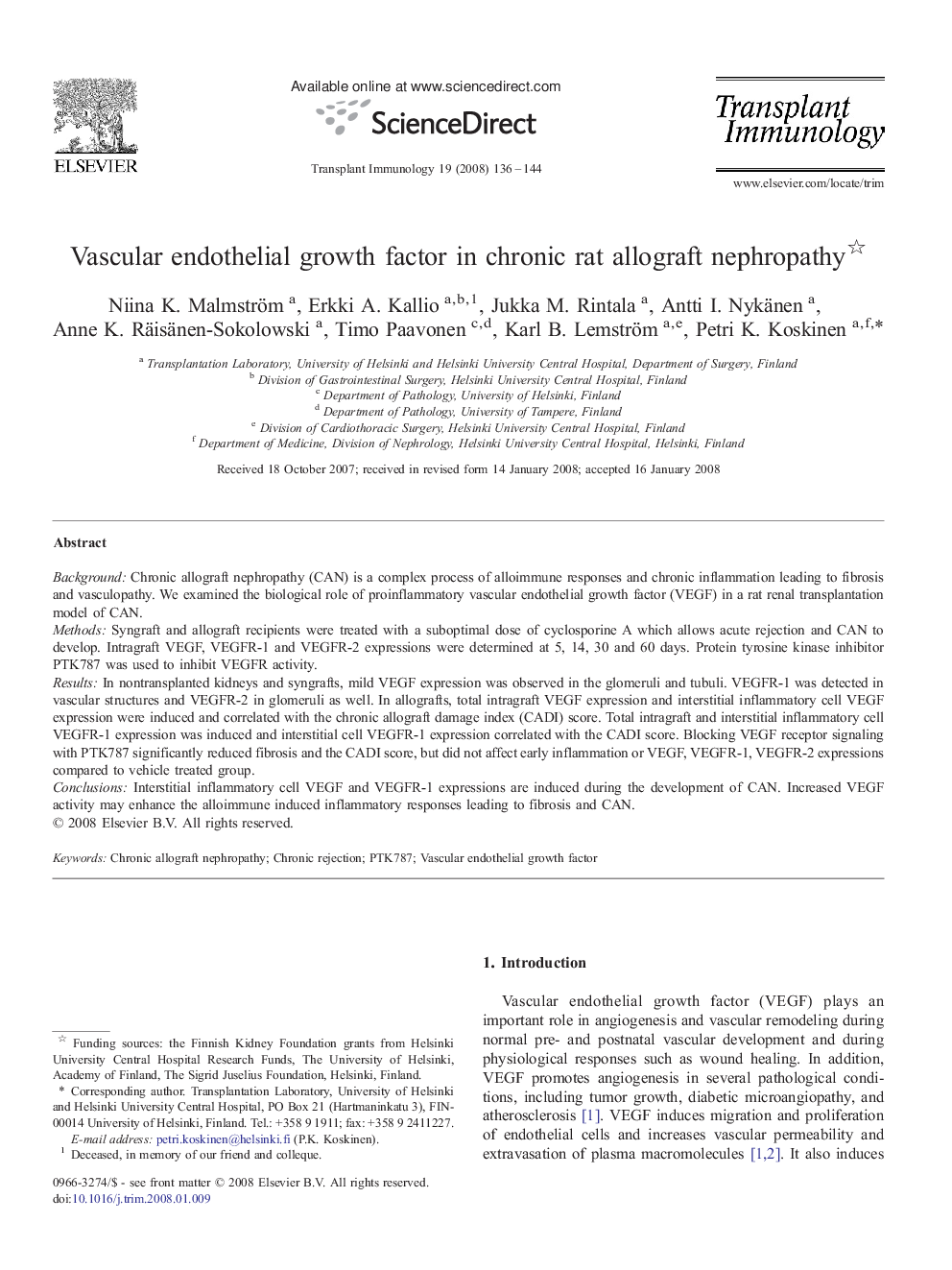| Article ID | Journal | Published Year | Pages | File Type |
|---|---|---|---|---|
| 3392465 | Transplant Immunology | 2008 | 9 Pages |
BackgroundChronic allograft nephropathy (CAN) is a complex process of alloimmune responses and chronic inflammation leading to fibrosis and vasculopathy. We examined the biological role of proinflammatory vascular endothelial growth factor (VEGF) in a rat renal transplantation model of CAN.MethodsSyngraft and allograft recipients were treated with a suboptimal dose of cyclosporine A which allows acute rejection and CAN to develop. Intragraft VEGF, VEGFR-1 and VEGFR-2 expressions were determined at 5, 14, 30 and 60 days. Protein tyrosine kinase inhibitor PTK787 was used to inhibit VEGFR activity.ResultsIn nontransplanted kidneys and syngrafts, mild VEGF expression was observed in the glomeruli and tubuli. VEGFR-1 was detected in vascular structures and VEGFR-2 in glomeruli as well. In allografts, total intragraft VEGF expression and interstitial inflammatory cell VEGF expression were induced and correlated with the chronic allograft damage index (CADI) score. Total intragraft and interstitial inflammatory cell VEGFR-1 expression was induced and interstitial cell VEGFR-1 expression correlated with the CADI score. Blocking VEGF receptor signaling with PTK787 significantly reduced fibrosis and the CADI score, but did not affect early inflammation or VEGF, VEGFR-1, VEGFR-2 expressions compared to vehicle treated group.ConclusionsInterstitial inflammatory cell VEGF and VEGFR-1 expressions are induced during the development of CAN. Increased VEGF activity may enhance the alloimmune induced inflammatory responses leading to fibrosis and CAN.
